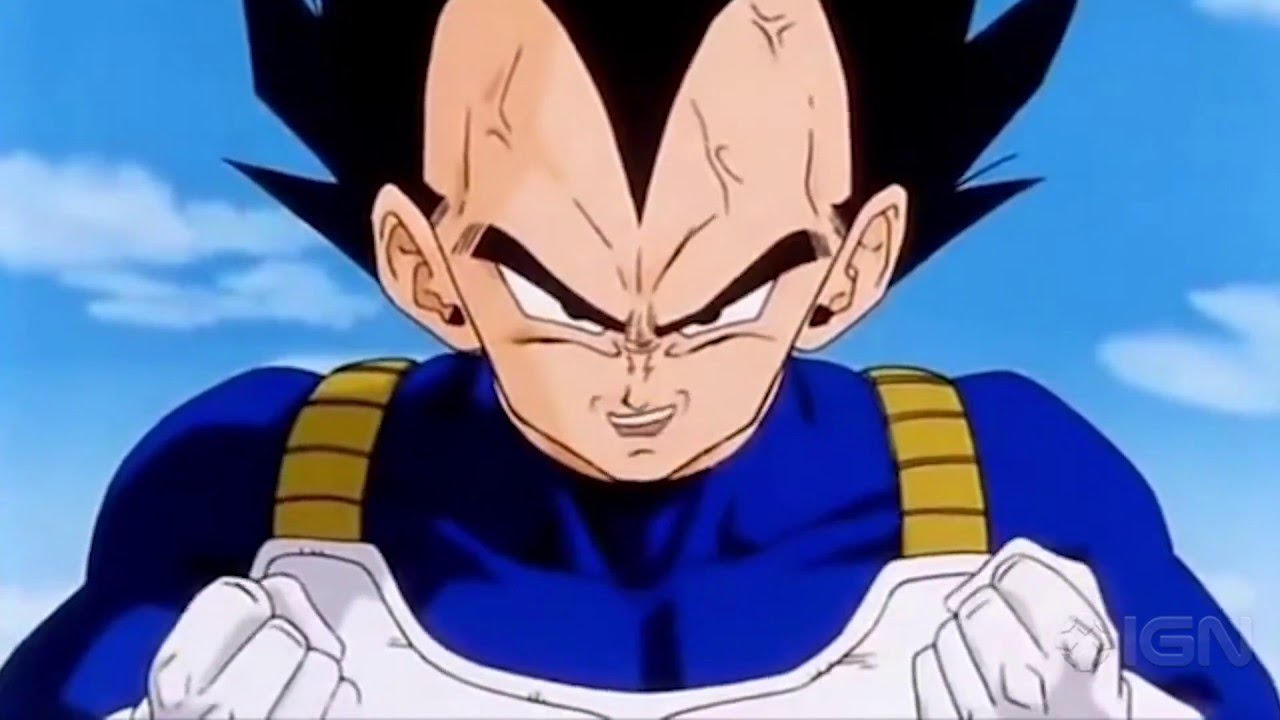Interview: The Family Tree’s Dermot Mulroney
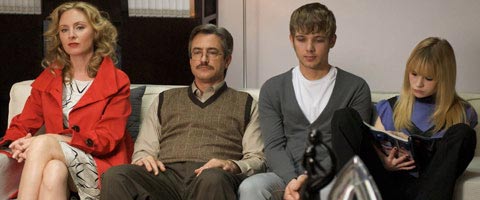
Your Daily Blend of Entertainment News
You are now subscribed
Your newsletter sign-up was successful
We get our fair share of dysfunctional families on the big screen, but very few to the extent of the Burnetts in The Family Tree. Dermot Mulroney stars as the papa bear, Jack. When his wife, Bunnie (Hope Davis), gets knocked out during some naughty and unfaithful role-playing, Jack finds her at the hospital unable to remember anything that happened after they were married. While trying to bring Bunnie up-to-date, Jack also must keep an eye on his gun-loving and borderline religious fanatic of a son, Eric (Max Thieriot), and his daughter, Kelly (Britt Robertson), who’s enjoying exploring her romantic options.
In honor of The Family Tree’s August 26th release in New York and Los Angeles, Mulroney took the time to talk a bit about making the film. With dozens of titles to his name, Mulroney’s experience working on set has undoubtedly changed over the years. Sure, some things are tougher as there tend to be fewer resources to go around, but the additional pressure also keeps the cast and crew on their toes, propelling their effort to bring the audience the best possible final product.
Check out what Mulroney had to say about re-teaming with his good friend Hope Davis, overcoming his past troubles learning the lines, what he’s working on next and much more in the interview below.
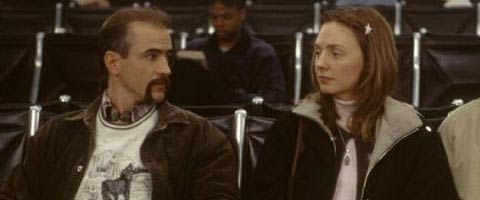
What was it that drew you in for this one? Is there anything specific about Jack you connected to?
Dermot Mulroney: Well, I like old Jack. He has his tiny little world and he thinks everything’s working out okay and then obviously he realizes, ultimately, you have to make a little more effort in your life. I can relate to that. I liked the movie as a whole and really responded to the director when I met her. You know what I like about The Family Tree is it’s a kitchen sink movie; you can’t think of anything that it doesn’t either throw into the story for conflict or poke fun at or attack even, so I like it. It’s like an aggressive comedy [laughs], aggressively attacking these issues of race and crime and Christianity and guns, the list goes on and on.
In most of the movies I know you from, you play the straight man even if the film involves some absurd situations. That’s somewhat the case here, but you definitely get to show off a sillier side; was that appealing?
It was and that was something that [director] Vivi [Friedman] really wanted in the role. What’s interesting about Jack were the things that he didn’t do or the things that he wasn’t good at like being a father to his kids. Sometimes those zeros are hard to portray. If you’re a criminal and you have to climb a fence and dig a tunnel and rob a bank, that’s not a zero, that’s a positive. But to be playing a guy who doesn’t do anything, it can be a trap, it can be a real challenge for an actor, so she and I both recognized that and wanted to make him as actively passive as possible. Maybe that’s even over thinking it, but to address your question, yes, we deliberately brought in as much of the fool in that character as possible, otherwise I feel that he may have just laid there in the film a little bit.
Your Daily Blend of Entertainment News
This is that kind of movie where all these crazy things are happening, but everyone’s playing their characters so straight and that’s what makes it funny.
That’s what we were shooting for, for sure. Another side effect of that is it can be somehow more impacting to an audience, if you recognize that the characters in the movie are missing the thing so then you, the audience, are the ones reacting to it for the first time rather than passively witnessing somebody else’s reaction to it, another character’s reaction to it.
How about those other characters? When you were considering joining the cast, had anyone else signed on?
Hope Davis and I are friends because we worked together on About Schmidt, so we were in touch when I knew that they were pursuing her for the role. We talked and, you know, I guess that has us playing husband and wife twice now and I don’t think we really act like that in real life because we’re just genuine friends, but we checked with each other [laughs], and made a decision together. Maybe I’m exaggerating a little, but once I knew Hope was doing it, I was determined to take the job.
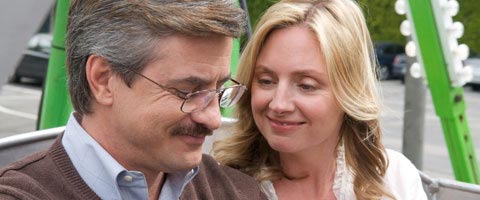
How is that for you having a relationship with her outside of work and then having to alter it to fit the material?
It’s actually a real blast, especially in the case of Hope, because she’s obviously one of our great actresses, but also a great friend and sweet and smart and hilarious, all that you’d expect that she is. To go into a project knowing the person already and then slipping into the characters that we’re assigned that time is really fun, especially in light of the characters that we played in About Schmidt, which were significantly of a different ilk.
How about your kids in the film? Did you get to spend any time with them beforehand to build that relationship?
[Laughs] That was not the case at all. It was kind of like where you pull up in your car to the set for the first time and then you shake the hand of the kid that’s playing your son and then they roll camera. So, very little prep time; I don’t remember precisely why, where I was that I couldn’t do rehearsal, but that’s more often the case than not. That’s how it’s done these days. You just have to be prepared and know what you want and be quick and intuitive to see what the other actor’s doing, so hopefully those two things go together.
Considering you didn’t get much rehearsal time, is it safe to assume that it’s the same case for shooting time?
Oh, of course. Everybody is now, even the big movies. The days where you luxuriously had 20 takes because you felt like you wanted a couple more to make sure, I haven’t worked that way in years. Even the bigger budgeted movies, the actual camera time that the camera is running is pretty short these days.
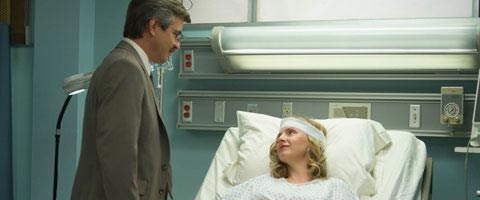
Would you say this changed your preparation process or how you approach your work while on set?
Yeah, it has actually. There’s a lot less time to get things wrong, so you have to be that much more prepared whether it’s learning your lines, which I’ve had trouble with a couple of times over the years, but now I wouldn’t dream of going on a set where you think you can just sort of remember them or you can brush up in the makeup trailer and shoot it. No way, because, those few times that I have blown a scene for not remembering lines, it’s so avoidable.
Did you find any scene particularly difficult to shoot?
The home invasion scene was really fun and if we had any trouble it’s because we all kept laughing. That’s all I can think of.
Do you prefer the scenes that are more choreographed like that?
Yeah, definitely. Something like that, you need to have it pretty well choreographed because there’s six, eight, I don’t know, ten people in that scene with a lot of movement. Those are fun and it’s fun to see how a director’s gonna approach them. So I do prefer that than standing on a street talking or sitting at the dining room table.
Do you like to be aware of technical elements, like where the camera is?
Yeah, I’m always aware of how it’s being shot, how the filmmakers are going about it, yeah. It’s just a part of the job for me. It’s not something I can avoid noticing.
Considering that, how was it shooting that Ferris wheel scene? Are you really on a Ferris wheel?
Yeah, they actually mounted a camera onto a cheap little Ferris wheel, one of those county fair or church carnival type of Ferris wheels. The Ferris wheel you see in the movie is us on there. The camera’s being operated remotely; there’s not a cameraman looking through the lens. There’s a number of shots in that sequence, but the one that’s closest on us is just a lock off camera on the actual Ferris wheel car that we’re in … And, frankly, that’s probably the only way they could afford it.
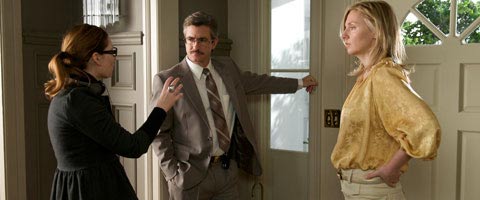
Did you notice any other corners that had to be cut because of the tight budget?
Well, you probably noticed there weren’t 300 extras at that carnival. We all knew we had to try to make it look as lightly crowded as possible. But things like that, you either have the money for $100 a piece per person plus food; it’s a lot of money if you want that to look like a really crowded fair. In fact, I remember producers and the director, not arguing, but trying to figure out how best to solve that. So there’s some things like that in this movie, where it’s not as much. There’s some coverage missing just because of time. You can see a couple of scenes where you’re wondering why you’re not seeing somebody in close-up when you’re seeing the other person and usually that’s not because the editor didn’t think it was a good cut, it’s because the footage doesn’t exist. A lot of movies, you know, just fall short of time and money.
As for your upcoming projects, when I scheduled this interview, I believe they said you were about to shoot something. Is that Struck by Lightning?
No, Struck by Lightning I finished and that’s a supporting role playing Chris Colfer’s father in a really good script that he wrote, so that was a really interesting job and then next week I travel to Nashville to do, again, a small supporting part, but in a really cool movie called Stoker that has Matthew Goode, Mia Wasikowska and Nicole Kidman in the lead parts and I play a small part of – ah, I can’t even tell you; it’d give the whole thing away. Suffice to say, it’s a high-tension horror thriller type of movie.
Staff Writer for CinemaBlend.

